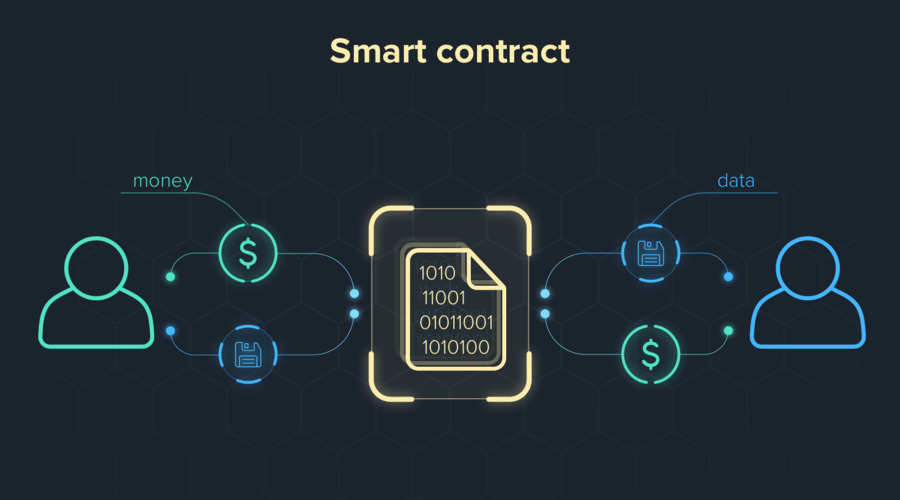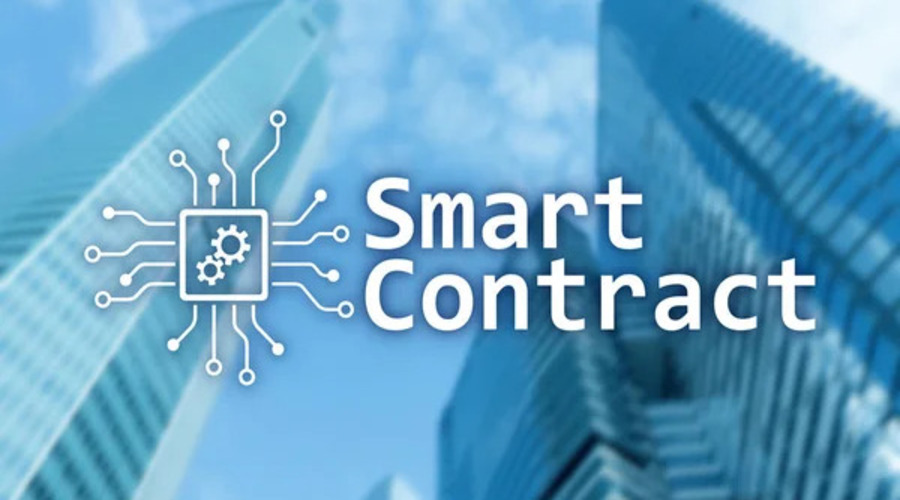Smart contracts have revolutionized the world of decentralized finance (DeFi), enabling the creation of trustless and transparent financial applications. However, as the DeFi ecosystem continues to evolve, it becomes crucial to address the challenges associated with smart contract upgrades and security. In this article, we will explore the importance of smart contract upgrades, the security considerations to keep in mind, and best practices for ensuring the integrity of smart contracts in the DeFi space.
Introduction Smart Contract Upgrades
In recent years, decentralized finance has gained significant traction, providing innovative financial services without relying on traditional intermediaries. Central to the DeFi ecosystem are smart contracts, self-executing contracts with the terms of the agreement directly written into the code. Smart contracts have become the building blocks for various applications, including lending platforms, decentralized exchanges, and yield farming protocols.
Understanding Smart Contract Upgrades
Smart contracts, once deployed on a blockchain, are immutable, meaning their code and functionality cannot be altered. This immutability is a core feature of blockchain technology, as it ensures transparency and eliminates the need for intermediaries. However, it also poses a challenge when updates or improvements need to be made to the smart contract’s code.
The Need for Smart Contract Upgrades
Smart contract upgrades are essential to address bugs, enhance functionality, and adapt to changing market conditions. Upgrades can fix vulnerabilities, introduce new features, or optimize existing ones. As the DeFi space evolves rapidly, smart contracts must evolve too, to remain secure and competitive.
Security Considerations in Smart Contract Upgrades

When upgrading smart contracts, security considerations play a vital role. Ensuring the integrity and safety of the upgrade process is essential to prevent vulnerabilities and protect user funds. The following security considerations are crucial in smart contract upgrades:
- Auditing and Testing: Before deploying any smart contract upgrade, thorough auditing and testing should be conducted. Audits help identify potential vulnerabilities, logic flaws, or security risks in the contract code. It is advisable to engage reputable security auditors or firms specializing in smart contract security.
- Formal Verification: Formal verification is a rigorous process that mathematically proves the correctness of a smart contract. It involves using mathematical models and proofs to verify the contract’s behavior and ensure its adherence to specified properties. Formal verification can significantly enhance the security of smart contract upgrades.
- Code Standards and Best Practices: Adhering to industry-standard coding practices and guidelines is crucial in smart contract development and upgrades. Following established code standards, such as the Solidity style guide, can help prevent common programming errors and vulnerabilities. Additionally, leveraging established best practices, such as utilizing secure libraries, can enhance the security of smart contracts.
- Community Governance and Consensus: In the DeFi space, community governance and consensus play a crucial role in smart contract upgrades. Establishing a transparent and inclusive decision-making process ensures that upgrades are thoroughly discussed, evaluated, and approved by the community. This helps in building trust and reducing the risk of contentious upgrades.
Best Practices for Smart Contract Upgrades
To ensure the smooth execution of smart contract upgrades, it is essential to follow best practices. The following practices can help maintain compatibility, minimize disruptions, and mitigate risks:
- Versioning and Compatibility: Maintaining version control and backward compatibility is crucial when upgrading smart contracts. By following a versioning scheme and ensuring compatibility between contract versions, users can seamlessly transition to the upgraded contracts without any loss of functionality or funds.
- Time-Locked Upgrades: Implementing time locks in smart contract upgrades adds an extra layer of security and allows users to react if any issues arise. Time locks provide a grace period during which users can review and assess the impact of the upgrade before it becomes effective.
- Proxy Contracts: Proxy contracts act as intermediaries between users and the underlying smart contract logic. They enable seamless upgrades without disrupting user interactions. By implementing upgradeable proxy contracts, developers can introduce changes to the underlying logic without requiring users to migrate or modify their interactions.
- Bug Bounties and Responsible Disclosure: Running bug bounty programs encourages security researchers to identify vulnerabilities and report them responsibly. Offering rewards for identifying critical issues incentivizes the community to actively participate in the security review process, enhancing the overall security of the smart contract upgrades.
Challenges and Risks in Smart Contract Upgrades
While smart contract upgrades bring numerous benefits, they also come with challenges and risks that need to be addressed. The following are some of the key challenges and risks associated with smart contract upgrades in the DeFi space:
- Regulatory Compliance: As the regulatory landscape surrounding cryptocurrencies and DeFi continues to evolve, ensuring compliance with relevant regulations becomes crucial during smart contract upgrades. Developers and project teams need to consider legal requirements and engage with regulatory bodies when necessary.
- User Experience: Upgrading smart contracts should not result in a poor user experience. Projects need to ensure that users can seamlessly transition to the upgraded contracts without significant disruptions or inconveniences. Proper communication and user education are vital to avoid confusion and maintain user trust.
- Governance and Coordination: Coordinating and obtaining consensus among stakeholders for smart contract upgrades can be challenging. It requires effective governance mechanisms and communication channels to ensure that decisions are made collectively, considering the interests of the community.
- Economic Considerations: Smart contract upgrades can have economic implications, especially in DeFi protocols where funds are locked in various contracts. Upgrades that affect token economics, staking mechanisms, or rewards distribution need to be carefully evaluated to prevent unintended consequences or negative impacts on users and stakeholders.
Mitigating Security Risks in Smart Contract Upgrades
To mitigate security risks in smart contract upgrades, the following measures should be considered:
- Timely Security Audits: Conducting regular security audits by reputable firms helps identify vulnerabilities and assess the overall security of smart contract upgrades. Timely audits provide an opportunity to fix any potential issues before the upgraded contracts are deployed.
- Multi-signature Wallets: Using multi-signature wallets for managing the upgrade process adds an extra layer of security. Requiring multiple authorized signatures ensures that no single party has unilateral control over the upgrade, reducing the risk of unauthorized or malicious changes.
- Transparent Communication: Maintaining transparent communication with the community is essential during smart contract upgrades. Providing regular updates, explaining the rationale behind the upgrades, and addressing community concerns help build trust and foster a collaborative environment.
- Red Teaming: Engaging external security experts to conduct red teaming exercises can help identify potential vulnerabilities or attack vectors. Red teaming involves simulating real-world attacks to assess the resilience of the smart contract upgrades and identify any weaknesses that need to be addressed.
Future Trends in Smart Contract Upgrades
The field of smart contract upgrades is continually evolving, and several trends are shaping the future of upgrades in the DeFi space:
- On-chain Governance: Increased emphasis on decentralized on-chain governance models, where token holders participate in decision-making processes and voting for upgrades.
- Automated Upgrades: The development of upgrade mechanisms that allow for automatic and seamless transitions between contract versions, reducing the need for manual intervention.
- Security Standardization: The establishment of industry-wide security standards and best practices for smart contract upgrades to enhance overall security and reduce vulnerabilities.
- Formal Verification Tools: Advancements in formal verification tools and techniques, making it easier to mathematically prove the correctness and security of smart contract upgrades.
Conclusion
Smart contract upgrades are a crucial aspect of the rapidly evolving DeFi landscape. By addressing security considerations, following best practices, and engaging in transparent communication, projects can ensure the integrity and safety of smart contract upgrades. It is essential for the DeFi community to collaborate, innovate, and prioritize security as we navigate the future of smart contract upgrades.
FAQs
Q1: Are smart contracts upgradeable?
Yes, smart contracts can be upgraded, but it requires careful planning, testing, and coordination to ensure a smooth transition without compromising security or user experience.
Q2: How often should smart contracts be audited?
Regular security audits are recommended, especially before deploying any significant upgrades. The frequency of audits may vary depending on the complexity and criticality of the changes.
Q3: What is the role of the community in smart contract upgrades?
The community plays a vital role in smart contract upgrades by participating in governance, providing feedback, and collectively making decisions that impact the future direction of the project.
Q4: Can smart contract upgrades lead to the loss of user funds?
While smart contract upgrades carry some inherent risks, following best practices, conducting thorough audits, and implementing security measures can significantly reduce the likelihood of funds being compromised.
Q5: How can I stay updated on smart contract upgrades in the DeFi space?
To stay updated, it is recommended to follow official project channels, join community forums, and engage with reputable sources that provide insights and analysis on smart contract upgrades in the DeFi ecosystem.

